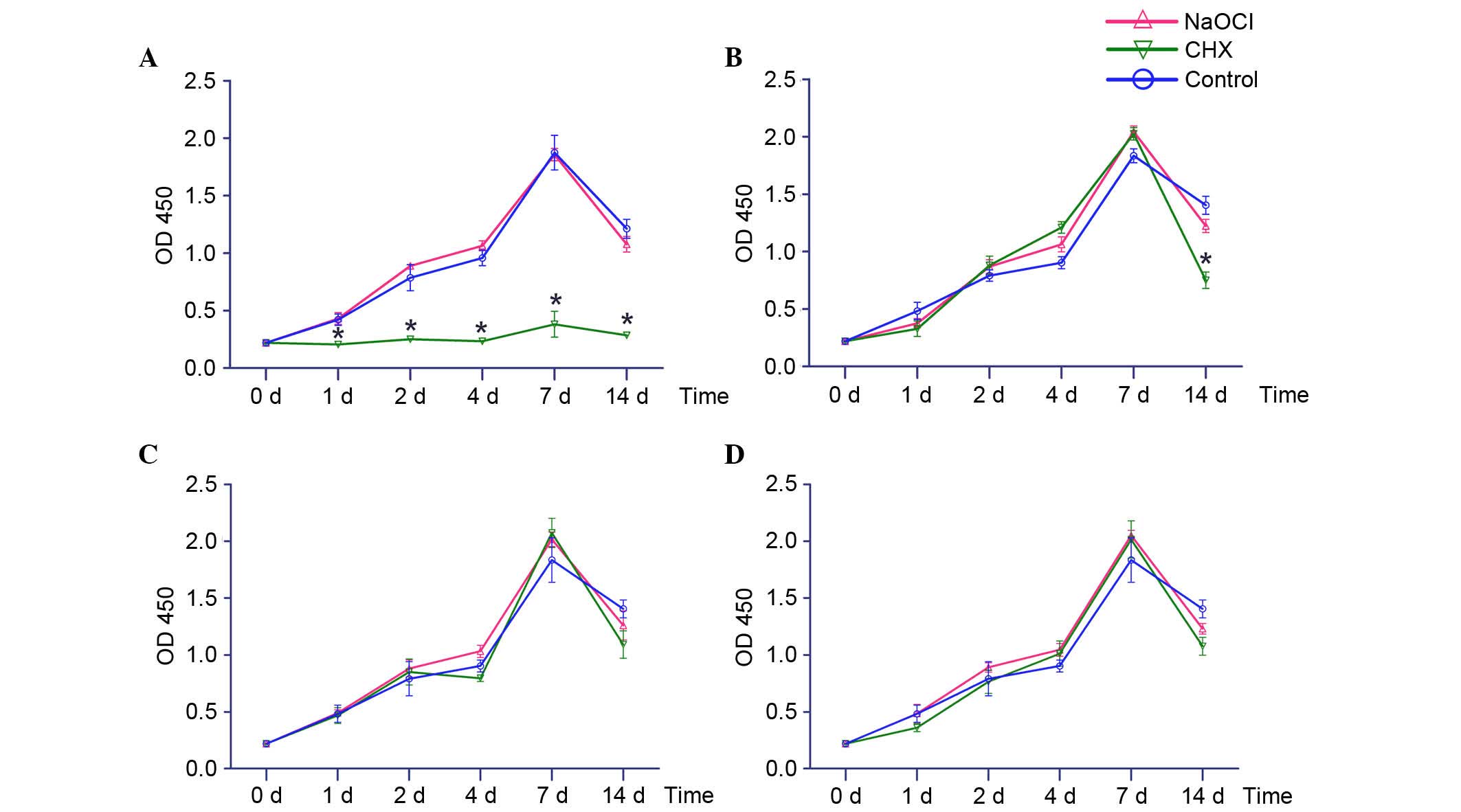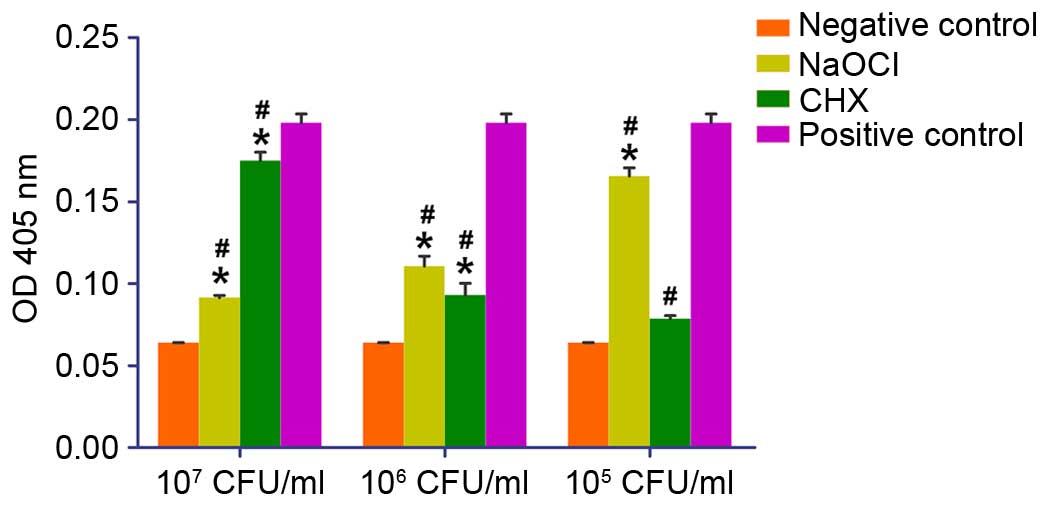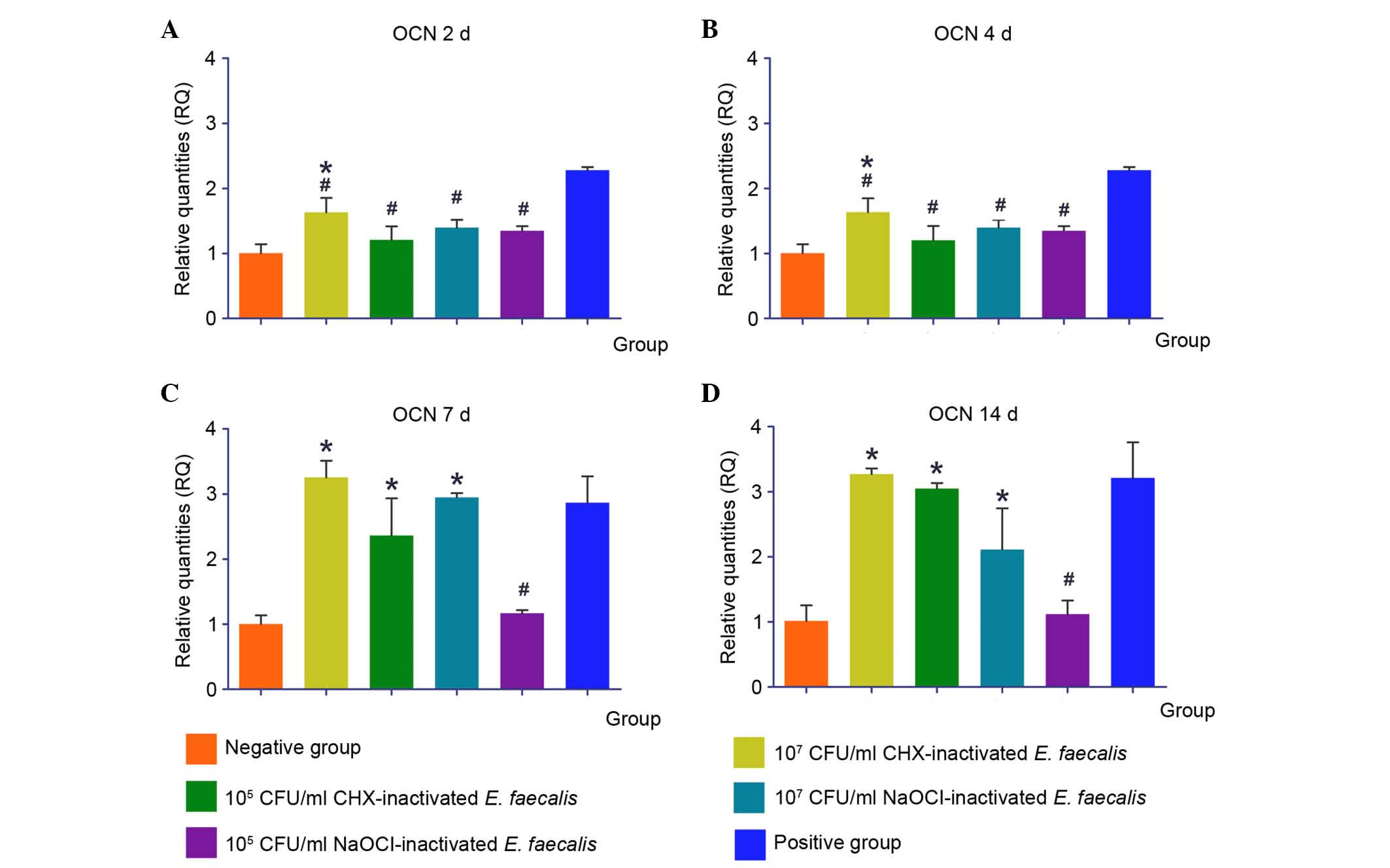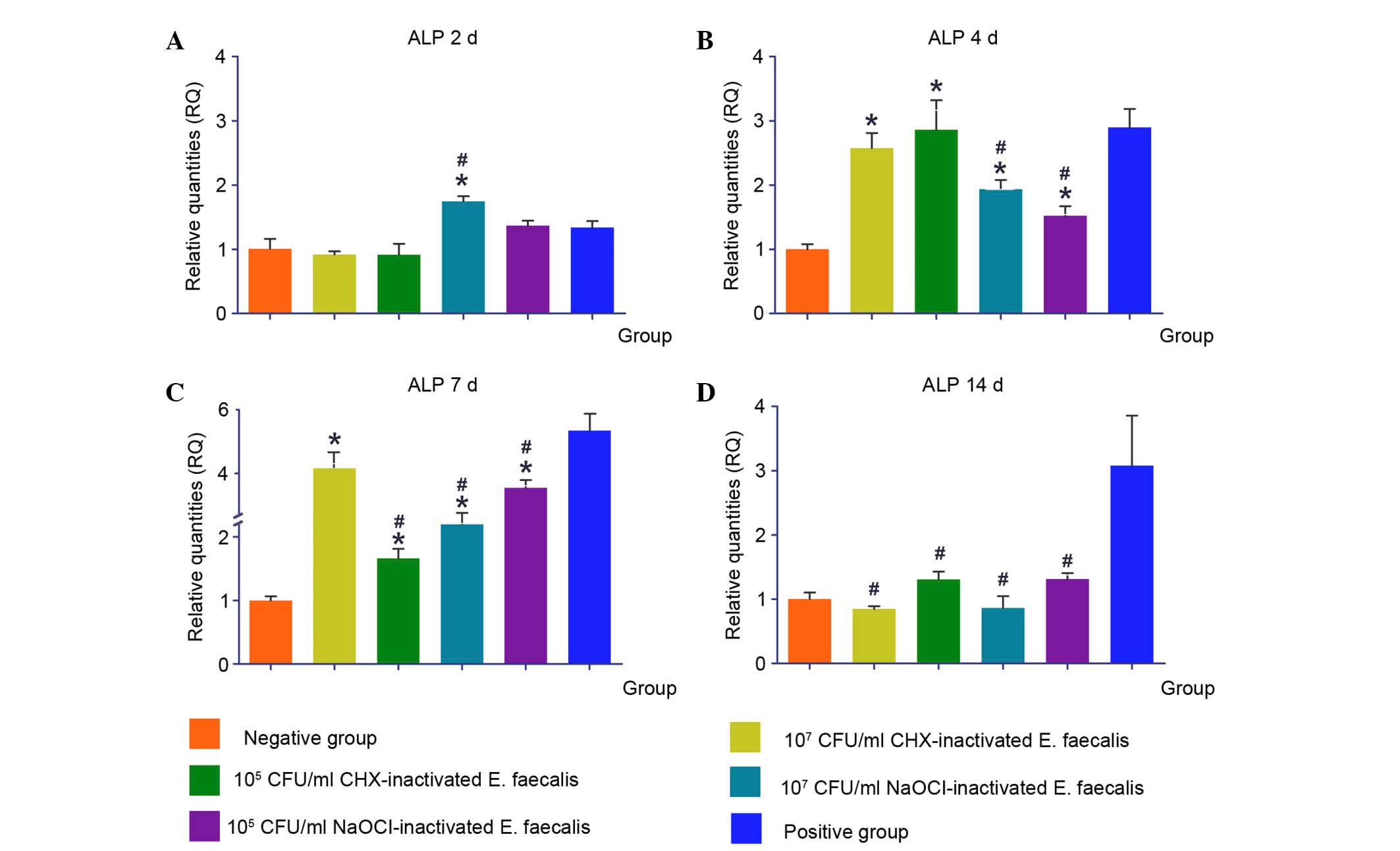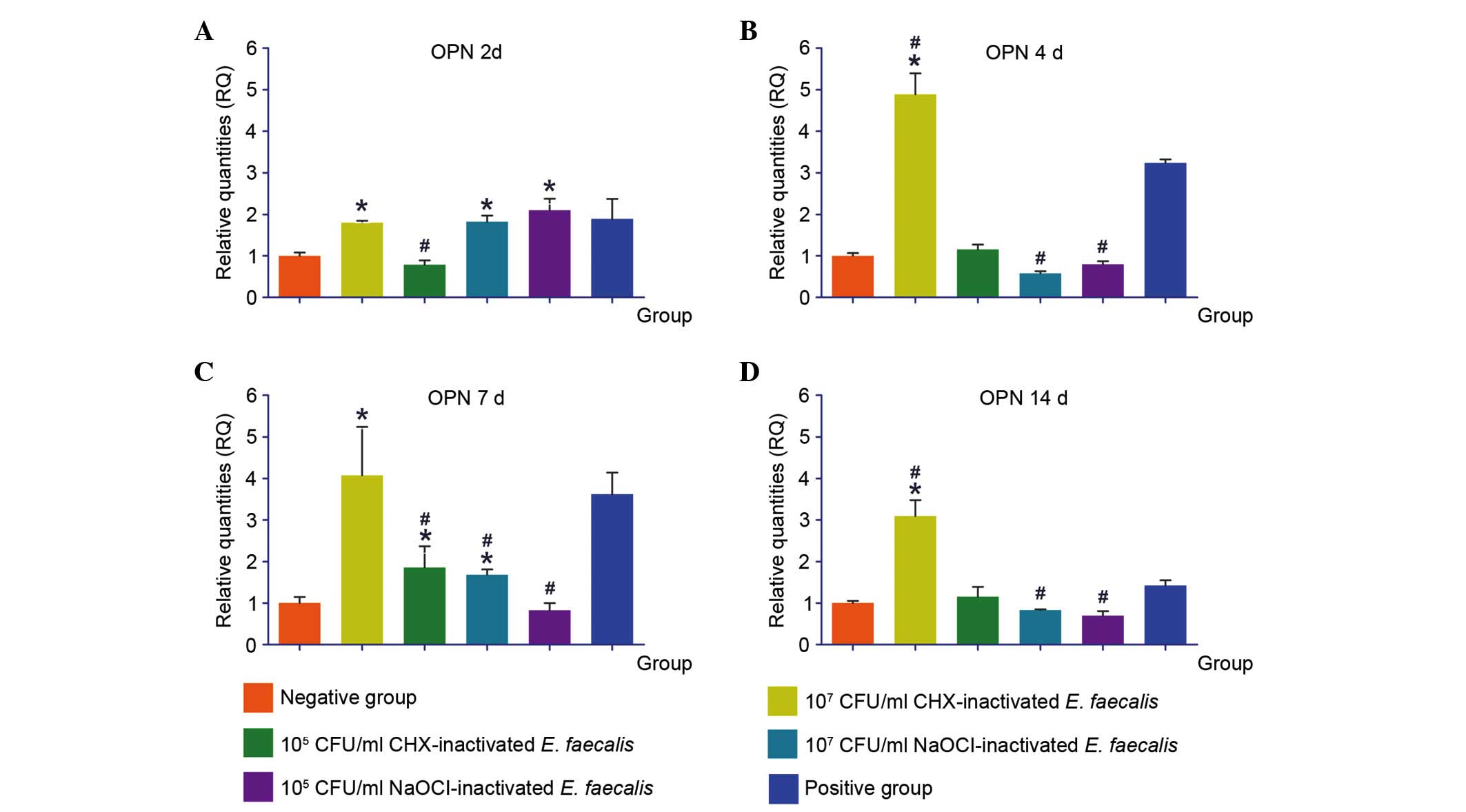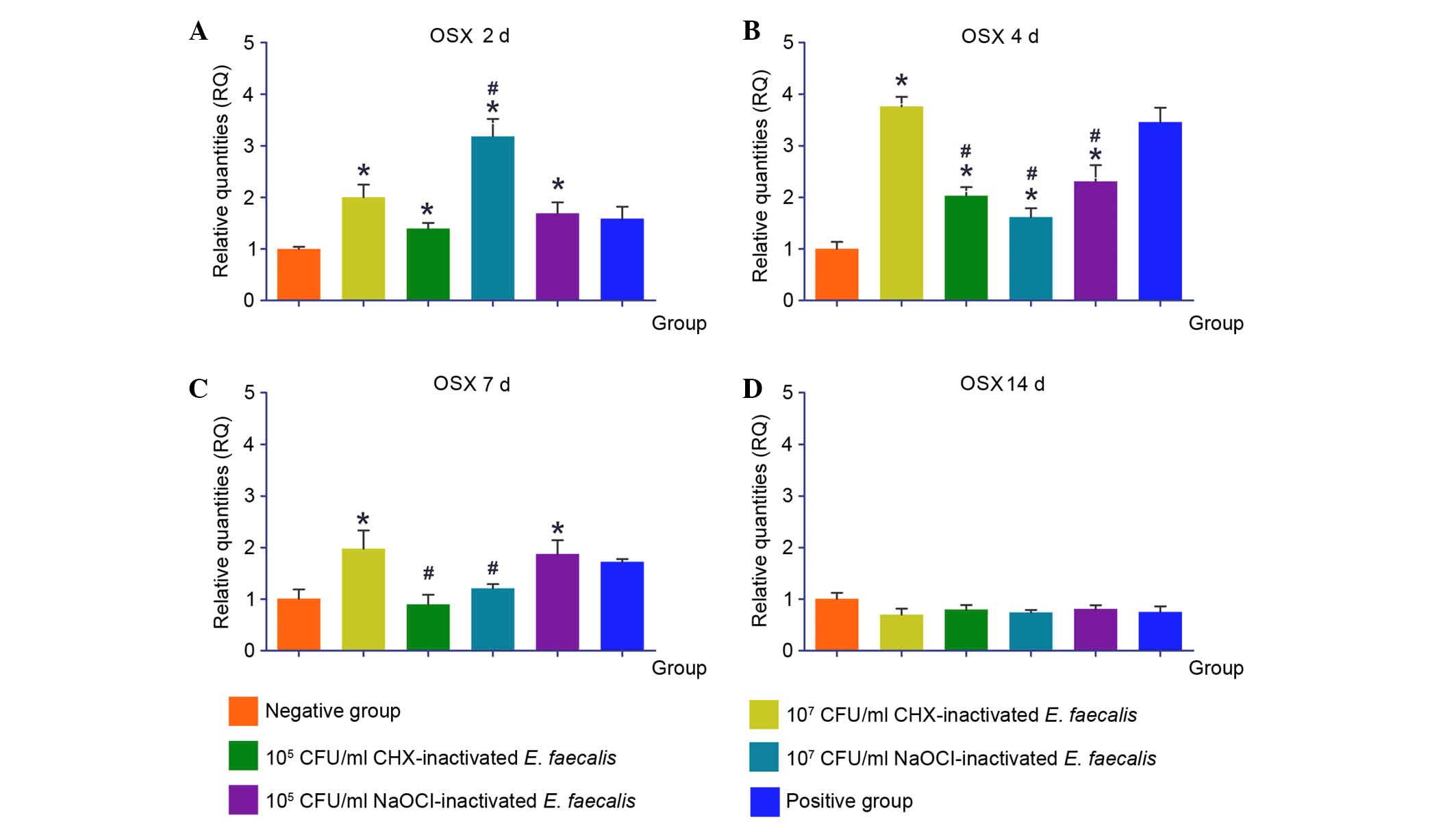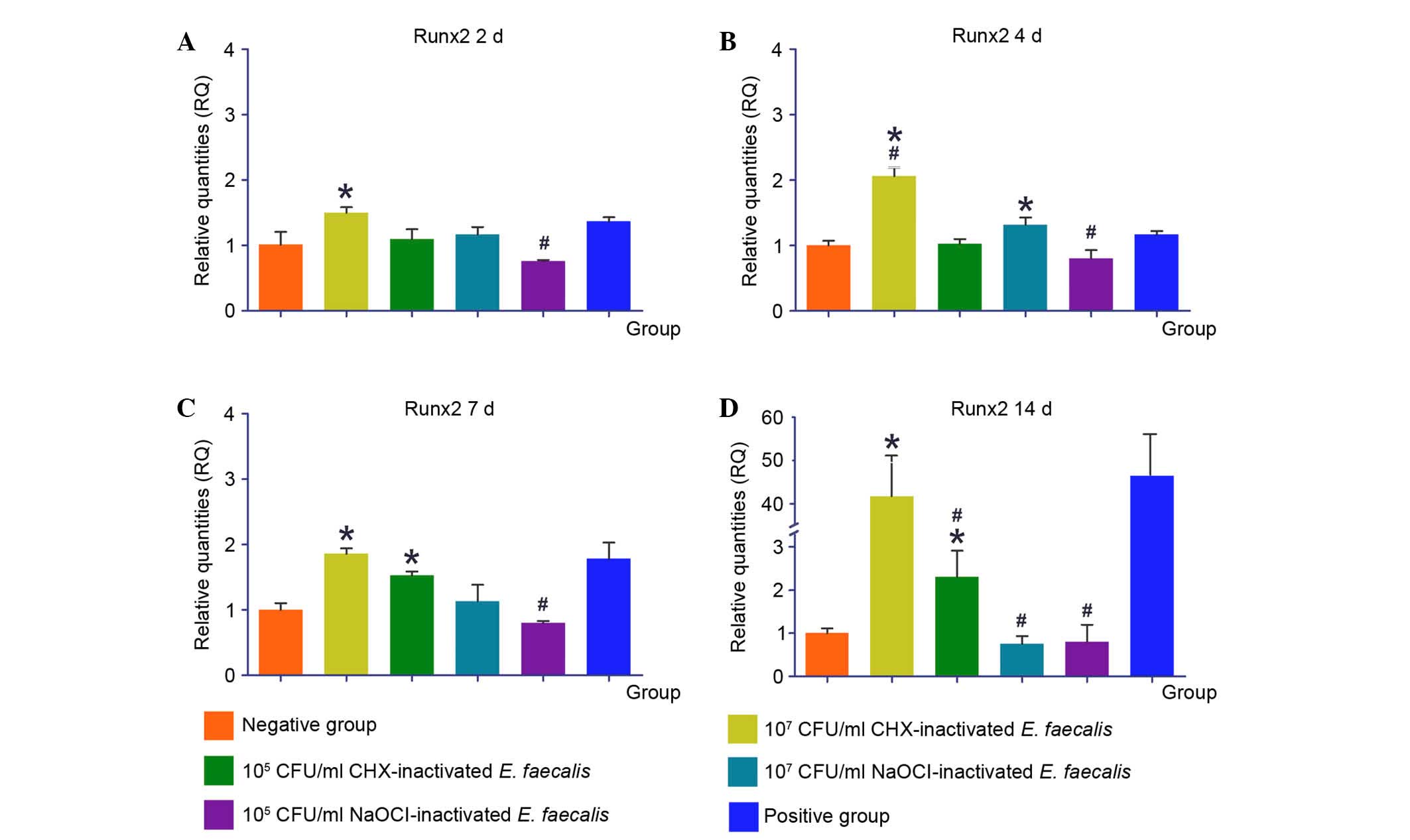|
1
|
Narayanan LL and Vaishnavi C: Endodontic
microbiology. J Conserv Dent. 13:233–239. 2010. View Article : Google Scholar : PubMed/NCBI
|
|
2
|
Peciuliene V, Maneliene R, Balcikonyte E,
Drukteinis S and Rutkunas V: Microorganisms in root canal
infections: A review. Stomatologija. 10:4–9. 2008.PubMed/NCBI
|
|
3
|
Rôças IN and Siqueira JF Jr: Root canal
microbiota of teeth with chronic apical periodontitis. J Clin
Microbiol. 46:3599–3606. 2008. View Article : Google Scholar : PubMed/NCBI
|
|
4
|
Portenier I, Waltimo TMT and Haapasalo M:
Enteroccus faecalis - the root canal survivor and ‘star’ in
posttreatment disease. Endod Top. 6:135–160. 2003. View Article : Google Scholar
|
|
5
|
Stuart CH, Schwartz SA, Beeson TJ and
Owatz CB: Enterococcus faecalis: Its role in root canal treatment
failure and current concepts in retreatment. J Endod. 32:93–98.
2006. View Article : Google Scholar : PubMed/NCBI
|
|
6
|
Siqueira JF Jr and Rôças IN: Bacterial
pathogenesis and mediators in apical periodontitis. Braz Dent J.
18:267–280. 2007. View Article : Google Scholar : PubMed/NCBI
|
|
7
|
Cao X: Targeting osteoclast-osteoblast
communication. Nat Med. 17:1344–1346. 2011. View Article : Google Scholar : PubMed/NCBI
|
|
8
|
Capulli M, Paone R and Rucci N: Osteoblast
and osteocyte: Games without frontiers. Arch Biochem Biophys.
561:3–12. 2014. View Article : Google Scholar : PubMed/NCBI
|
|
9
|
Bruderer M, Richards RG, Alini M and
Stoddart MJ: Role and regulation of RUNX2 in osteogenesis. Eur Cell
Mater. 28:269–286. 2014.PubMed/NCBI
|
|
10
|
Zhang R, Oyajobi BO, Harris SE, Chen D,
Tsao C, Deng HW and Zhao M: Wnt/beta-catenin signaling activates
bone morphogenetic protein 2 expression in osteoblasts. Bone.
52:145–156. 2013. View Article : Google Scholar : PubMed/NCBI
|
|
11
|
Kanisavaran ZM: Chlorhexidine gluconate in
endodontics: An update review. Int Dent J. 58:247–257. 2008.
View Article : Google Scholar : PubMed/NCBI
|
|
12
|
Mohammadi Z: Sodium hypochlorite in
endodontics: An update review. Int Dent J. 58:329–341. 2008.
View Article : Google Scholar : PubMed/NCBI
|
|
13
|
Livak KJ and Schmittgen TD: Analysis of
relative gene expression data using real-time quantitative PCR and
the 2(−Delta Delta C(T)) Method. Methods. 25:402–408. 2001.
View Article : Google Scholar : PubMed/NCBI
|
|
14
|
Naghmouchi K, Le Lay C, Baah J and Drider
D: Antibiotic and antimicrobial peptide combinations: Synergistic
inhibition of Pseudomonas fluorescens and antibiotic-resistant
variants. Res Microbiol. 163:101–108. 2012. View Article : Google Scholar : PubMed/NCBI
|
|
15
|
Collins B, Cotter PD, Hill C and Ross RP:
The impact of nisin on sensitive and resistant mutants of Listeria
monocytogenes in cottage cheese. J Appl Microbiol. 110:1509–1514.
2011. View Article : Google Scholar : PubMed/NCBI
|
|
16
|
Piper C, Draper LA, Cotter PD, Ross RP and
Hill C: A comparison of the activities of lacticin 3147 and nisin
against drug-resistant Staphylococcus aureus and Enterococcus
species. J Antimicrob Chemother. 64:546–551. 2009. View Article : Google Scholar : PubMed/NCBI
|
|
17
|
Ghiselli R, Giacometti A, Cirioni O,
Dell'Acqua G, Mocchegiani F, Orlando F, D'Amato G, Rocchi M,
Scalise G and Saba V: RNAIII-inhibiting peptide and/or nisin
inhibit experimental vascular graft infection with
methicillin-susceptible and methicillin-resistant Staphylococcus
epidermidis. Eur J Vasc Endovasc Surg. 27:603–607. 2004. View Article : Google Scholar : PubMed/NCBI
|
|
18
|
Hartke A, Giard JC, Laplace JM and Auffray
Y: Survival of Enterococcus faecalis in an oligotrophic microcosm:
Changes in morphology, development of general stress resistance,
and analysis of protein synthesis. Appl Environ Microbiol.
64:4238–4245. 1998.PubMed/NCBI
|
|
19
|
Katono T, Kawato T, Tanabe N, Suzuki N,
Iida T, Morozumi A, Ochiai K and Maeno M: Sodium butyrate
stimulates mineralized nodule formation and osteoprotegerin
expression by human osteoblasts. Arch Oral Biol. 53:903–909. 2008.
View Article : Google Scholar : PubMed/NCBI
|
|
20
|
Lombardi G, Perego S, Luzi L and Banfi G:
A four-season molecule: Osteocalcin. Updates in its physiological
roles. Endocrine. 48:394–404. 2015. View Article : Google Scholar : PubMed/NCBI
|
|
21
|
Brennan-Speranza TC and Conigrave AD:
Osteocalcin: An osteoblast-derived polypeptide hormone that
modulates whole body energy metabolism. Calcif Tissue Int. 96:1–10.
2015. View Article : Google Scholar : PubMed/NCBI
|
|
22
|
Gericke A, Qin C, Spevak L, Fujimoto Y,
Butler WT, Sørensen ES and Boskey AL: Importance of phosphorylation
for osteopontin regulation of biomineralization. Calcif Tissue Int.
77:45–54. 2005. View Article : Google Scholar : PubMed/NCBI
|
|
23
|
Farley JR, Hall SL, Tanner MA and Wergedal
JE: Specific activity of skeletal alkaline phosphatase in human
osteoblast-line cells regulated by phosphate, phosphate esters, and
phosphate analogs and release of alkaline phosphatase activity
inversely regulated by calcium. J Bone Miner Res. 9:497–508. 1994.
View Article : Google Scholar : PubMed/NCBI
|
|
24
|
Lee SH, Jeong HM, Han Y, Cheong H, Kang BY
and Lee KY: Prolyl isomerase Pin1 regulates the osteogenic activity
of Osterix. Mol Cell Endocrinol. 400:32–40. 2015. View Article : Google Scholar : PubMed/NCBI
|
|
25
|
Zhang C: Transcriptional regulation of
bone formation by the osteoblast-specific transcription factor Osx.
J Orthop Surg Res. 5:372010. View Article : Google Scholar : PubMed/NCBI
|















